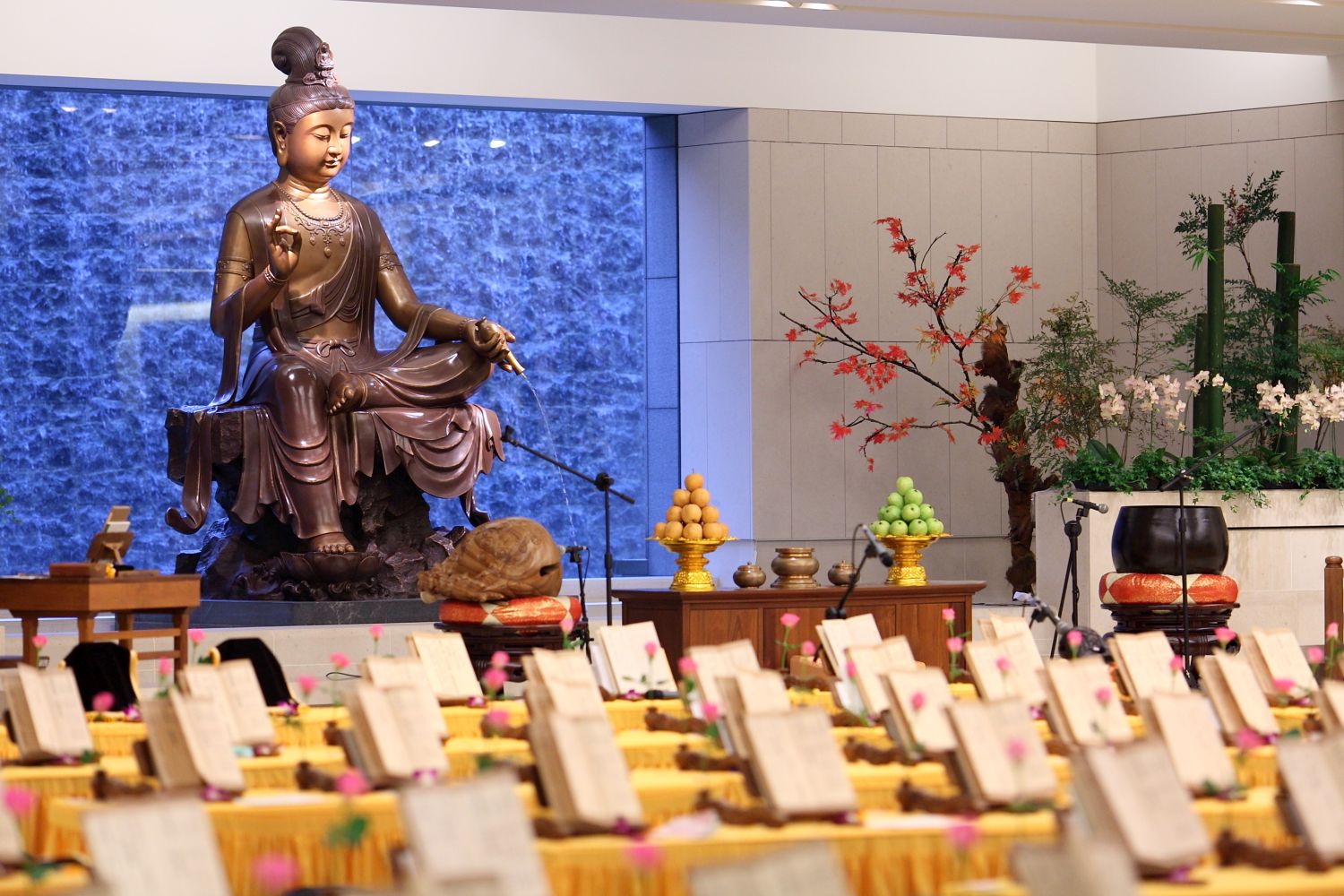Special Topics
Q2: Is it necessary to participate in Dharma assemblies if they are not performed for the deliverance of a deceased relative?
 A: According to the Parinirvana Sutra, compassion takes three forms: compassion based on awareness of the suffering of sentient beings; that which is based on awareness of the true nature of phenomena; and unconditional great compassion. Compassion based on awareness of the suffering of sentient beings entails regarding all sentient beings equally with kindness, thereby treating them just like our relatives and loved ones. Therefore, in the Buddhist concept, all sentient beings within the ten directions of the Dharma Realm are like our relatives and loved ones; they have actually built karmic affinities with us since limitless eons ago. Hence, to participate in Dharma assemblies for the deliverance of the deceased from suffering is to expand our Dharmic relationship with each other, thus manifesting the spirit of unconditional compassion.
A: According to the Parinirvana Sutra, compassion takes three forms: compassion based on awareness of the suffering of sentient beings; that which is based on awareness of the true nature of phenomena; and unconditional great compassion. Compassion based on awareness of the suffering of sentient beings entails regarding all sentient beings equally with kindness, thereby treating them just like our relatives and loved ones. Therefore, in the Buddhist concept, all sentient beings within the ten directions of the Dharma Realm are like our relatives and loved ones; they have actually built karmic affinities with us since limitless eons ago. Hence, to participate in Dharma assemblies for the deliverance of the deceased from suffering is to expand our Dharmic relationship with each other, thus manifesting the spirit of unconditional compassion.Participating in a Dharma assembly is not necessarily for the purpose of helping someone attain a better rebirth. More so it could also be a method of practice for ourselves, specifically as a form of group practice. A Dharma assembly may include rituals such as worshipping the Buddha, reciting the Buddhas' and Bodhisattvas' names, performing repentance, and studying and practicing Buddhadharma through liturgy texts. Furthermore, Dharma talks by monastics help us understand the spirit of the Dharma assembly and learn the Buddhist concepts. Through these rituals, we can gradually improve our bodily, verbal, and mental actions, thereby uplifting our lives. As stated in the Earth Treasury Sutra, by attending a Dharma assembly or reciting a sutra for the purpose of dedicating the merit to the deceased, we will attain six seventh of the benefits ourselves, hence becoming the ones who actually benefit the most.
Related articles:
Deliverance Service Benefits Both the Living and the Deceased
The Seventh Lunar Month Dharma Assemblies (I): The Ullambana Assembly – Repay Our Parents' Kindness with Merit Transfer
Dharma Assemblies in Lunar July (II): Yogacara Ulka-mukha Dharma Service to Save Hungry Ghosts from Suffering
Dharma Assemblies in Lunar July (III): Practicing Repentance at Emperor Liang’s Repentance Eliminates Delusion, Karma, and Suffering
Q1: Where will our relatives go after death? If they are already reborn, would our prayers for the deceased help them?
Q2: Is it necessary to participate in Dharma assemblies if they are not performed for the deliverance of a deceased relative?
Q3: Why does Buddhism maintain that care and concern for the deceased can be conveyed through Dharma assemblies?
Q4: If we are unable to attend a Dharma assembly at a temple or monastery, can we, alternatively, perform the deliverance ritual at home for our deceased relatives or friends?
Q5: How do we go about dedicating the merit? Can our deceased relatives actually receive the merit that is being dedicated?
Resource: Issue 240 of Humanity Magazine, Dharma Drum Publishing Corporation
Translation: Cheng-yu Chang (張振郁)
Editing: Keith Brown, Chiacheng Chang (張家誠)
